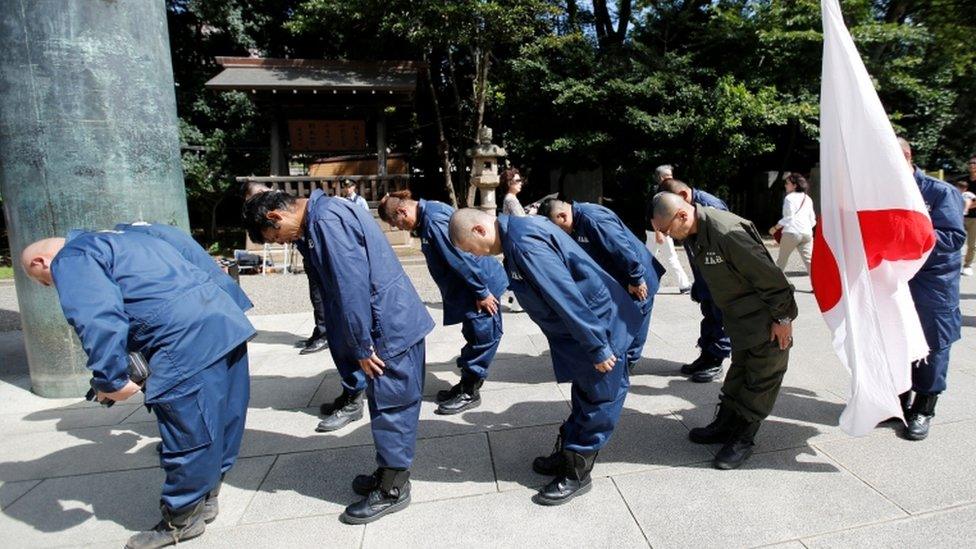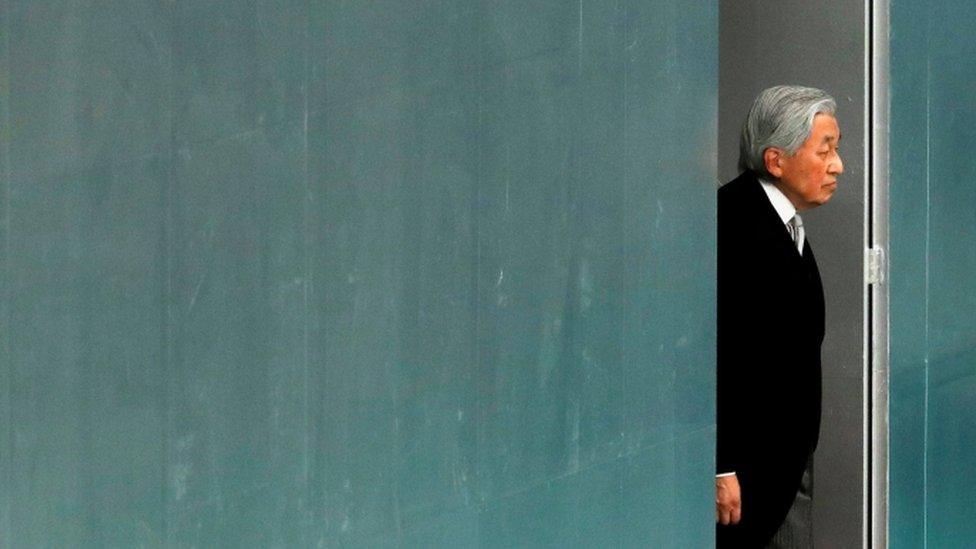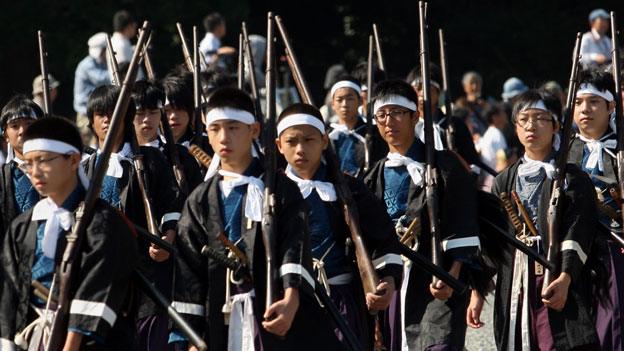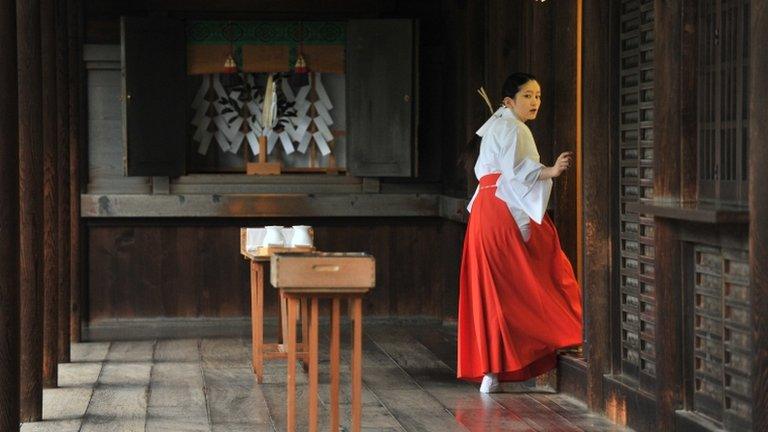Yasukuni Shrine: Chief priest to quit after criticising Japan's emperor
- Published

Members of a right-wing group bow their heads to honour the war dead at the shrine
The chief priest at Japan's controversial Yasukuni Shrine is to resign after making remarks highly critical of Emperor Akihito.
In comments leaked to a magazine, Kunio Kohori said he believed Emperor Akihito was trying to destroy the shrine by not visiting it.
The shrine in Tokyo honours Japan's 2.5 million war dead but also enshrines convicted criminals of World War Two.
It remains a high source of tension with neighbours, particularly China.
Emperor Akihito, who will abdicate next year, has never visited the shrine.
He has instead sought reconciliation with Japan's wartime enemies.
He has expressed regret over Japan's military actions in both China and the Korean peninsula, and has also visited several Pacific battlefields to honour the dead, actions that have brought him into conflict with right-wing groups at home.
Kunio Kohori's comments, made during a meeting at the shrine on 20 June, were leaked to the Shukan Post magazine.

Emperor Akihito has sought reconciliation with Japan's wartime enemies
Breaking the taboo of criticising the emperor, he said: "The more trips he makes, the more he is distancing himself from the Yasukuni... The current emperor is trying to destroy the Yasukuni Shrine".
The priest also reportedly says that Crown Prince Naruhito and his wife Masako will probably not visit the shrine once Emperor Akihito abdicates, saying the future empress "hates" the Shinto religion.
The BBC's Rupert Wingfield-Hayes in Tokyo says the outburst is a rare glimpse of how many conservatives in Japan are thought to view the emperor.

What is the Yasukuni Shrine?
Built in 1869 under the Emperor Meiji
Venerates the souls of 2.5 million war dead
Those enshrined include hundreds of convicted war criminals, among them war-time leader Hideki Tojo, executed in 1948
Shrine organisers stress that many thousands of civilians are honoured
China and South Korea see the shrine as a glorification of Japanese atrocities

In a statement, the shrine said the remarks were "highly inappropriate" and that Mr Kohori had apologised in person at the Imperial Household Agency, which oversees the affairs of the royal family.
A new chief priest will be chosen this month, the shrine said.
Emperor Akihito's father, Japan's wartime Emperor Hirohito, did not visit Yasukuni after 14 Japanese class-A war criminals from World War Two were enshrined there in 1978.
Although the emperors have not been to the shrine, some top politicians have, including Prime Minister Shinzo Abe, and their visits have sparked an angry response from critics, with China the most outspoken.
- Published14 March 2013

- Published18 October 2012
